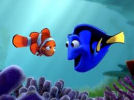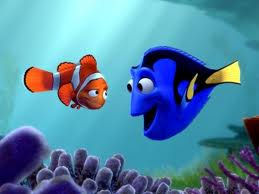Sexual confusion in animals and human-induced environmental change - new book
 Having trouble finding the right man or the right woman? Not sure which you want? You are not alone - well, not completely .... Female fish in Mexico, living in polluted streams, are mating with male fish of the wrong species, West Australian beetles are mistaking beer bottles for prospective partners. A new book by Bob Wong and Ulrika Candolin, Behavioural Responses to a Changing World: Mechanisms and Consequences is the first book of its kind devoted to understanding animal behavioural responses to environmental change. Behavioural Responses emphasises the vital links between environmental change, behaviour and population dynamics. Topics as diverse as endocrine disruption, learning, reproduction, migration, species interactions and evolutionary rescue are canvassed.
Having trouble finding the right man or the right woman? Not sure which you want? You are not alone - well, not completely .... Female fish in Mexico, living in polluted streams, are mating with male fish of the wrong species, West Australian beetles are mistaking beer bottles for prospective partners. A new book by Bob Wong and Ulrika Candolin, Behavioural Responses to a Changing World: Mechanisms and Consequences is the first book of its kind devoted to understanding animal behavioural responses to environmental change. Behavioural Responses emphasises the vital links between environmental change, behaviour and population dynamics. Topics as diverse as endocrine disruption, learning, reproduction, migration, species interactions and evolutionary rescue are canvassed.

Behavioural responses to a changing world
Male beetles in Western Australia are mating with beer bottles in response to environmental change caused by human activity. A new book examines why, and the impacts on biodiversity.
Oxford University Press today announced the launch of Behavioural Responses to a Changing World: Mechanisms and Consequences by Dr Bob Wong, of Monash University, and Ulrika Candolin from The University of Helsinki, Finland.
Drawing on international experts from across the globe, it is the first book of its kind devoted to understanding animal behavioural responses to environmental change. Behavioural Responses emphasises the vital links between environmental change, behaviour and population dynamics which have been rarely examined in the context of one another.
Co-editor Dr Bob Wong, Senior Lecturer at Monash University’s School of Biological Sciences and an expert in behavioural and evolutionary ecology, said how animals respond to changed conditions was a growing area of research interest.
“Due to human activities, almost all creatures live in environments that have been altered to some degree. The ability to behave accordingly under new conditions is crucial for survival,” Dr Wong said.
“Environmental change caused by human activity is considered the greatest single threat to global biodiversity. Scientists are only now beginning to appreciate the important ecological and evolutionary implications of altered behaviours due to environmental change."
Dr Wong said the initial response of many animals to human-induced environmental change is often behavioural, which in turn affects species’ interactions, population viability, evolution, and ultimately, biodiversity.
“Some of these behaviours can be beneficial and buy more time for populations and species to genetically adapt to altered conditions. Some species might even thrive in urban environments. But behaviours can also be maladaptive,” Dr Wong said.
Source of photo: http://qvcproject.blogspot.com.au/2012_02_01_archive.html
“Male beetles, for example, are mating with beer bottles because they resemble female beetles and female fish in Mexico, living in polluted streams, are mating with male fish of the wrong species.”
The comprehensive text discusses impacts on both the mechanisms underlying behavioural processes, as well as the longer-term ecological and evolutionary consequences. Topics as diverse as endocrine disruption, learning, reproduction, migration, species interactions and evolutionary rescue are canvassed.
Dr Wong will officially present ‘Behavioural Responses to a Changing World’ at a post-congress symposia of the 14th International Behavioral Ecology Congress on 18 August in Sweden.
For more information or to arrange interviews, contact Courtney Karayannis, Monash Media & Communications on +61 3 9903 4841 | +61 408 508 454 or [email protected]

Recent comments